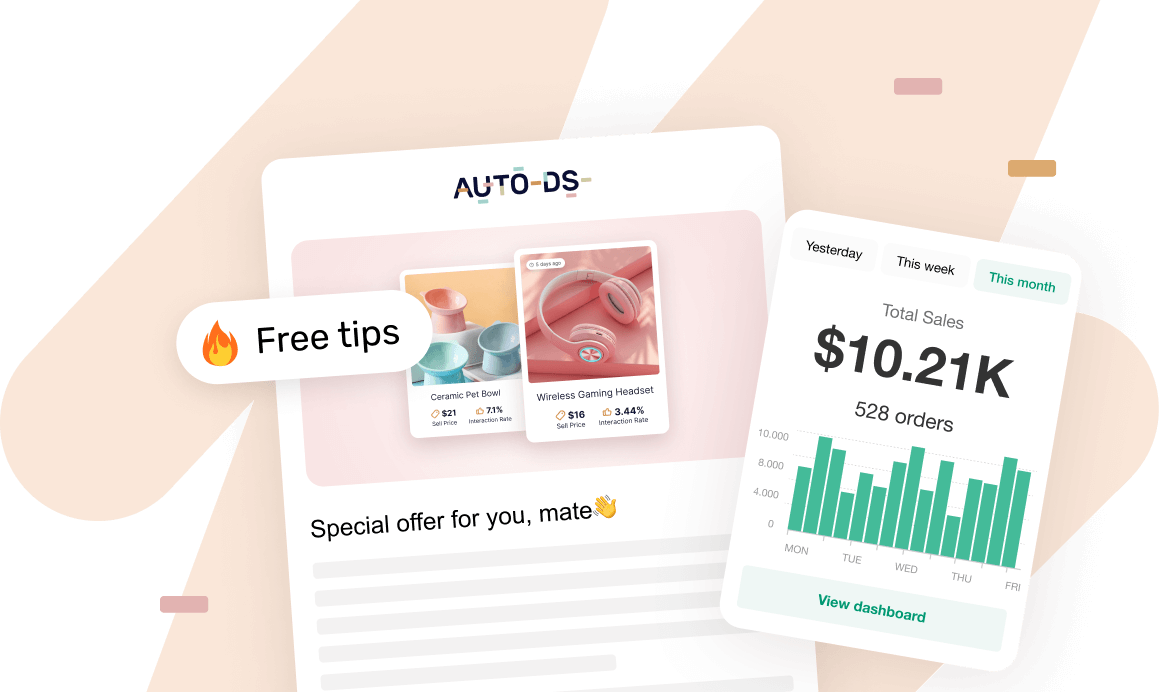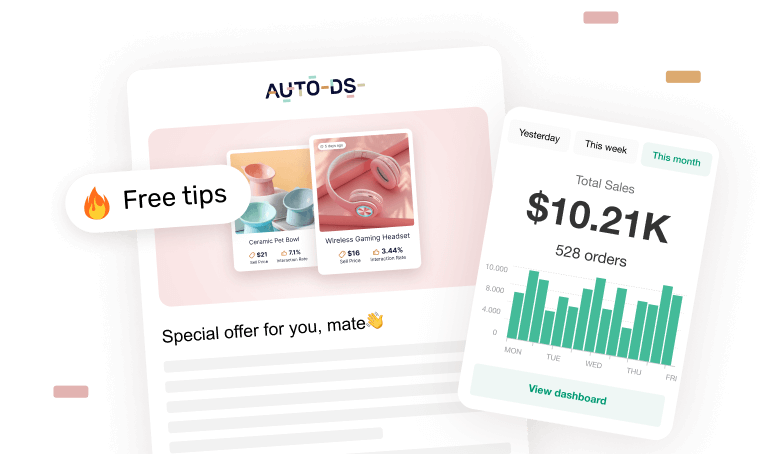Are you wondering if dropshipping is legal? You’re not alone, as many future business owners feel the same way. Indeed, dropshipping is becoming the best way to earn profits in the eCommerce world. However, the legalities can seem daunting and the rules confusing, making starting out feel challenging. But don’t worry, we’re here to address the big question: is dropshipping legal?
We understand that you might be concerned about getting into the dropshipping business. After all, setting up a store is a big step, and the last thing you want is legal trouble. This article aims to ease those fears and guide you through the ins and outs of dropshipping legality. Let’s tackle this topic together and help you start your business journey confidently.
Is Dropshipping Legal?
Yes, dropshipping is legal. It is a recognized and perfectly lawful method of order fulfillment globally.
However, it’s important to note that certain aspects of your dropshipping business could potentially lead to legal complications. It all depends on your supplier selection and the nature of the products you opt to sell, particularly copyrighted items. Hence, while dropshipping is legal, it’s essential to ensure your overall business operations align with lawful standards as well.
Is Dropshipping Legal On eBay?
You may ask – Is dropshipping legal on eBay? The answer is yes but with certain conditions. eBay allows dropshipping, provided the seller guarantees delivery within 30 days of purchase. Sellers must also ensure they do not advertise items they do not currently have access to. Therefore, you can legally dropship on eBay if you follow their specific rules and regulations.
Is Dropshipping Legal On Amazon?
Dropshipping is also legal on Amazon and also comes with specific guidelines. Amazon’s policy permits dropshipping, as long as the seller’s name shows on all packaging and documentation. Furthermore, sellers cannot purchase products from another online retailer and have them ship directly to the customer.
Is Dropshipping Legal On Shopify?
Yes, dropshipping is legal on Shopify. As long as the products you sell comply with relevant laws and regulations and the store operates within Shopify’s terms of service, dropshipping is a legal and accepted method of doing business on the platform. Moreover, you should avoid copyright infringement or products with trademarks and from big known companies.
Is Dropshipping Legal On Etsy?
Etsy permits dropshipping as long as the seller follows certain rules. The seller must disclose that they are using a third-party supplier and they are responsible for the fulfillment and delivery of orders. Additionally, the seller must ensure they sell handmade, vintage, or craft supplies, not mass-produced items.
Consumer Protection Laws
Consumer protection laws in the US and Europe aim to safeguard consumers’ rights and ensure fair and transparent transactions. Both regions have agencies enforcing these laws to protect consumers from fraud, false advertising, and unsafe products.
In the US, key laws include the Federal Trade Commission Act, which prohibits unfair and deceptive practices. Furthermore, it has the Consumer Product Safety Act, which ensures product safety.
On the other hand, the European Union Consumer Protection Laws include the Consumer Rights Directive, covering distance sales and contracts. Additionally, the General Data Protection Regulation (GDPR) safeguards personal data.
Truth In Advertising Laws
Advertising laws in the US and EU aim to ensure that advertisements are honest, accurate, and not misleading to consumers. In the US, the Federal Trade Commission (FTC) enforces these laws through regulations like the FTC Act. It disallows deceptive advertising practices and requires clear disclosures in endorsements.
Similarly in Europe, consumer protection laws, including the Unfair Commercial Practices Directive, address misleading advertising and false information. Advertisers must provide truthful information, avoid exaggeration, and clearly disclose sponsored content or relationships with endorsers.
Do I Need To Pay Taxes When Dropshipping?
When it’s all said and done, dropshipping is a business like any other. You have several obligations as a business owner to stay in compliance with its legal responsibilities.
For starters, the law requires you to file and pay dropshipping taxes. These taxes fall broadly into two categories: sales tax and income tax. Dropshippers collect sales taxes from customers on each purchase and send the funds to the government at the end of the year.
Many selling channels collect and pay sales taxes for you. However, some may not. Therefore, always check with your selling channel before you begin.
On the other hand, income taxes are a percentage of dropshipping profits the business owner pays at the end of the year. Governments do not automatically collect these funds from us. Instead, we must file our income tax at the end of the calendar year.
Lastly, don’t forget about source tax. Source tax is the tax that dropshippers need to pay to their suppliers when purchasing products. They typically charge it as a percentage of the purchase total, often around 10%. For example, if a product’s original cost is $10 and the source tax rate is 10%, the dropshipper would pay a total of $11.
What Is A Dropshipping Agreement, And Should I Get One?

Dropshipping agreements formalize the business relationship between you and the supplier and confirm that you are a legitimate reseller. It provides an extra layer of protection so that if something goes wrong with shipping or the product itself, the agreement binds the supplier to correct the problem.
However, that’s not to say that a lack of a dropshipping agreement makes you illegitimate. Many suppliers don’t offer a dropshipping agreement, yet some, like AliExpress, encourage dropshipping nonetheless.
Therefore, when a supplier offers a dropshipping agreement, you should get one. But don’t let the lack of an agreement stop you from utilizing other high-quality suppliers.
What Products Are Legal To Dropship?
Aside from keeping the business in order, you should also pay attention to what products you’re selling. We can’t just sell anything in a dropshipping store.
There are four critical elements of keeping your products legal:
- Staying away from copyrighted products
- Not selling products that are age-restricted or forbidden
- Avoiding listing dangerous items
- Don’t sell special categories like medical products or supplements
Let’s dive a bit deeper into each so we know what to look out for.
Copyrights

We’ll start with copyrights because it’s a common mistake dropshippers make. As a rule, avoid listing or selling any item that you know is protected by copyright. Big brands like Nike or Adidas are more obvious, but there are many more that you may not guess on your own.
The eBay VeRO page contains a list of sellers and manufacturers whose products we cannot sell without express permission. The database includes detailed information on how each company intends to enforce copyright violations.
Needless to say that these companies are not concerned about where a violation occurs. It can be eBay, Shopify, or any other online selling channel. So, treat eBay VeRO as a helpful resource that can help protect you from copyright infringement regardless of which selling channel you currently use.
What Happens If I Sell A Copyrighted Product?

Consequences of violating copyright rules can range from having your listing removed, your account suspended, or potential legal action. While the latter is less common, any of these are bad for business. So before listing something, double-check eBay VeRO.
It can become time-consuming to check eBay VeRO every time you list, especially if you’re trying to scale. That’s why your best bet is to use the AutoDS platform. Armed with an eBay VeRO detector, the system alerts you when you’re trying to list an item from the VeRO list.
For additional information on eBay VeRO and what to do when a violation occurs, follow our detailed eBay VeRO guide.
Age Restricted and Forbidden Products
Next on our list are age-restricted and forbidden products. While fewer dropshippers make this mistake, it can result in more significant consequences than copyright violations.
Most countries, especially in big markets like the US or Europe, have strict laws and regulations on selling age-restricted items to minors. To illustrate, in some US states, selling Alcohol or Tobacco products to minors is a misdemeanor that carries a fine or possible jail time.
And that’s beside the fact that selling tobacco online, even to adults, is a complex legal landscape. Typically, many states require tobacco retailers to have a license.
So do you need a license to dropship tobacco products? There is a chance that you do, depending on several factors. Only an attorney can give you a clear answer. However, considering the risk of selling to minors, it is probably best to avoid dropshipping tobacco altogether.
As to prohibitions unrelated to age, some countries forbid the sale of sex toys or other adult-themed products. It can also vary from state to state within a country.
Furthermore, many advertising platforms ban adult content-related ads, so it is best to avoid dropshipping from this category. To make things simpler, refrain from selling anything listed in Facebook’s Commerce policies, which are applicable on all selling channels.
How Do Some Stores Sell Forbidden Items?
You might find online stores that sell forbidden categories. Don’t assume that it makes it ok. These stores are either fully compliant with complex regulations or are taking unnecessary risks.
Given how dropshipping works, it can become burdensome to comply with the complex rules. Therefore, you’re better off avoiding forbidden categories altogether. With millions of fully legal products from an abundance of categories, there is simply no need to take risks.
Tips On How To Keep Dropshipping Legal
To keep dropshipping legal, follow these tips:
Tip #1: Add legal pages to your store
Include a Privacy Policy, Returns & Refunds Policy, and Terms of Service to inform customers about their rights and your store’s policies. You can use tools like the AutoDS Privacy Policy Generator to create these pages easily.
Tip #2: Choose dropshipping-friendly suppliers:
Work with reputable suppliers who permit dropshipping and have clear policies regarding this business model. Further, avoid selling products with restrictions on reselling to prevent legal issues.
By implementing these measures, you can ensure transparency, protect customer rights, and comply with relevant regulations, making your dropshipping business legally sound.
Dropship Legally And Earn
There you have it, a comprehensive guide on dropshipping legally. It may seem like a lot of information, but remember that some selling channels already cover many legal hurdles.
Additionally, the scenarios we presented are pretty rare. Most dropshippers don’t want to sell weapons. Likewise, it’s not common for a supplier to stiff you without the order or send out a fake item.
At the end of the day, dropshipping is legal and profitable. So why get scared off by regulations? Follow the articles and video below to start a legal dropshipping store with trouble-free products:





















